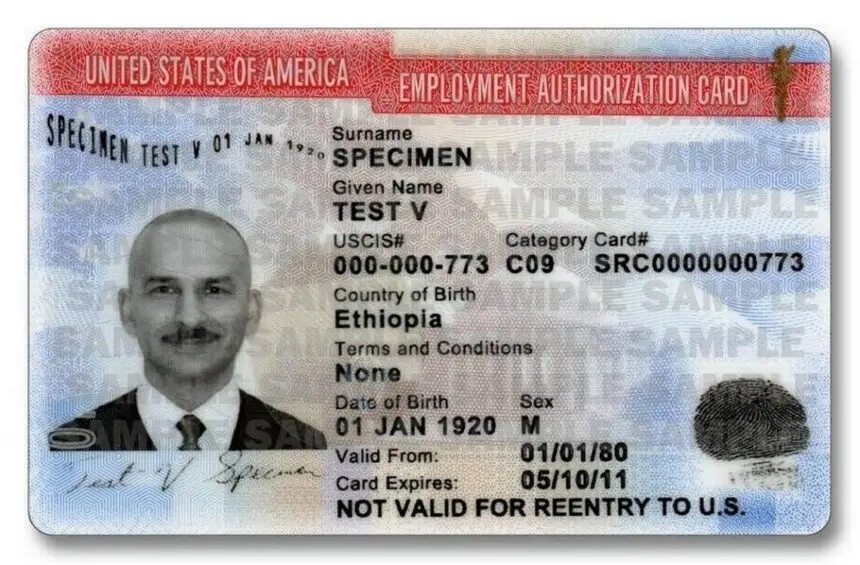DHS implements groundbreaking policy: immigrant and asylum seeker work permits now receive 540-day automatic extension
The Department of Homeland Security (DHS) has announced a significant policy modification designed to support immigrant workers and their employers.
Beginning January 13, 2025, qualifying applicants will see their Employment Authorization Documents (EADs) automatically extended for up to 540 days. This landmark decision addresses application backlogs and comes in response to advocacy efforts from prominent leaders, including U.S. Representative Chellie Pingree, U.S. Senator Angus King, and Maine Governor Janet Mills.
Understanding the extension and its significance
Employment authorization documents, also referred to as work permits, provide legal work authorization for immigrants and asylum seekers in the United States. The previous system only offered automatic 180-day extensions during renewal processing. This limited duration frequently created difficulties for both workers and employers due to processing delays.
The new 540-day extension period ensures eligible workers can maintain continuous employment while awaiting their renewed EAD processing. This modification eliminates employment gaps that previously resulted in job losses for immigrant workers and workforce disruptions for employers, especially in regions like Maine where immigrant workers are crucial in addressing workforce shortages.
Lisa Parisio, who serves as policy director at the Immigrant Legal Advocacy Project in Maine, expressed support for the initiative:”This final rule solves the problem by automatically extending existing work permits for the time it takes to process renewals, ensuring that there are no gaps in work authorization.”
This policy shift follows sustained advocacy from Maine’s political leadership. Through a joint communication to DHS Secretary Alejandro Mayorkas and USCIS Director Ur Jaddou, Congresswoman Pingree, Senator King, and Governor Mills highlighted the critical need for change. Their collective statement emphasized the dual benefits for workers and businesses:”This extension provides much-needed stability as states like Maine continue to face labor shortages, ensuring that immigrants and asylum seekers can keep their jobs without suffering unnecessary interruptions caused by delays in processing applications.”
Maine experienced particular difficulties due to processing delays, with both immigrant employees and employers facing challenges when work authorizations expired before renewal completion. These interruptions proved especially problematic in industries with significant immigrant workforce participation.
From temporary to permanent: The evolution of the policy
The 540-day automatic extension isn’t entirely unprecedented. DHS had previously enacted two temporary measures allowing this extended period, with the most recent implementation occurring in April 2024. During that period, applicants encountered processing delays extending up to 16 months, significantly exceeding the three-month processing goal.
Despite recent improvements in processing times, the unprecedented volume of EAD applications submitted this year highlights the necessity for a lasting resolution. This newly implemented rule formalizes the extension period, delivering sustained relief to both the workforce and their employers.
Legislative efforts to reform work authorization
While the rule marks progress, Maine’s political representatives emphasize that substantial work remains in addressing fundamental immigration policy challenges. Congresswoman Pingree has introduced legislation aimed at reducing the work permit waiting period for asylum seekers from 180 to 30 days. Her proposed bill also seeks to eliminate the biennial renewal requirement, which she argues creates unnecessary administrative barriers and processing delays.
In parallel, Senator King and Republican Senator Susan Collins have put forward comparable legislation in the Senate, though their bill includes a provision requiring asylum seekers to enter the United States through designated ports of entry—a requirement that has faced opposition from immigrant advocacy organizations.
What this means for immigrant workers
For the immigrant and asylum-seeking community, this rule represents a crucial safeguard. The automatic extensions lasting up to 540 days enable individuals to maintain financial stability and support their families without risking employment loss due to administrative delays.
“This regulation provides essential stability,” Mr. Parisio noted. “It represents a significant achievement for Maine’s business community and immigrant workforce.”
A step forward in the face of current challenges
Although the Biden administration’s ruling marks substantial progress, government officials and advocacy groups acknowledge the journey ahead. Comprehensive immigration reform, enhanced work authorization processes, and equitable pathways for all immigrants remain ongoing objectives that Maine officials and immigrant rights advocates continue to pursue.
As the nation grapples with workforce shortages and immigration-related challenges, this policy adjustment reinforces the essential contributions immigrants make to America’s economic landscape and community fabric. For the present, the automatic 540-day extension provides meaningful relief and advances the goal of a more equitable immigration framework.
Sources: NewsFromTheStates.com
- NewsFromTheStates.com
- Statements from Congresswoman Chellie Pingree, Senator Angus King, and Governor Janet Mills.
- DHS and USCIS announcements.







